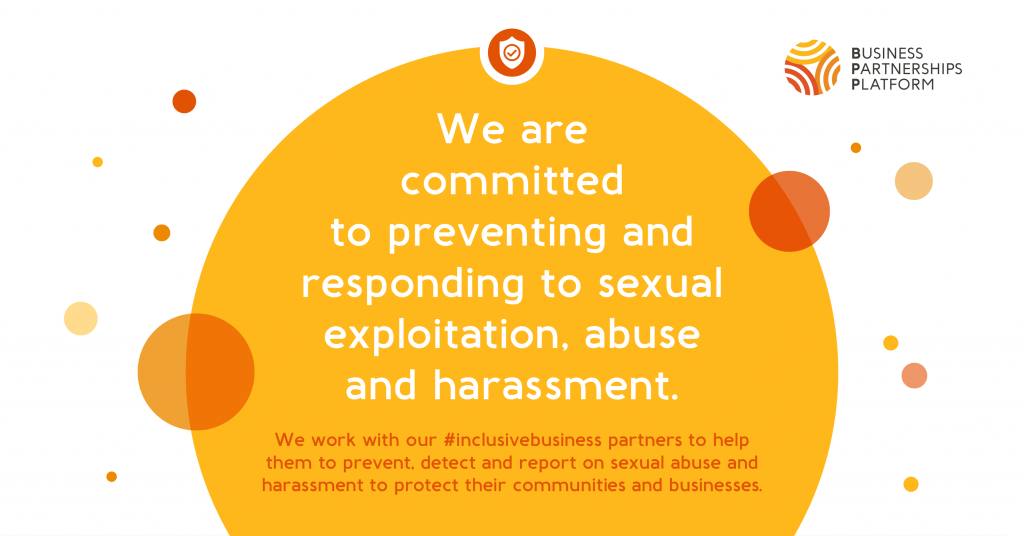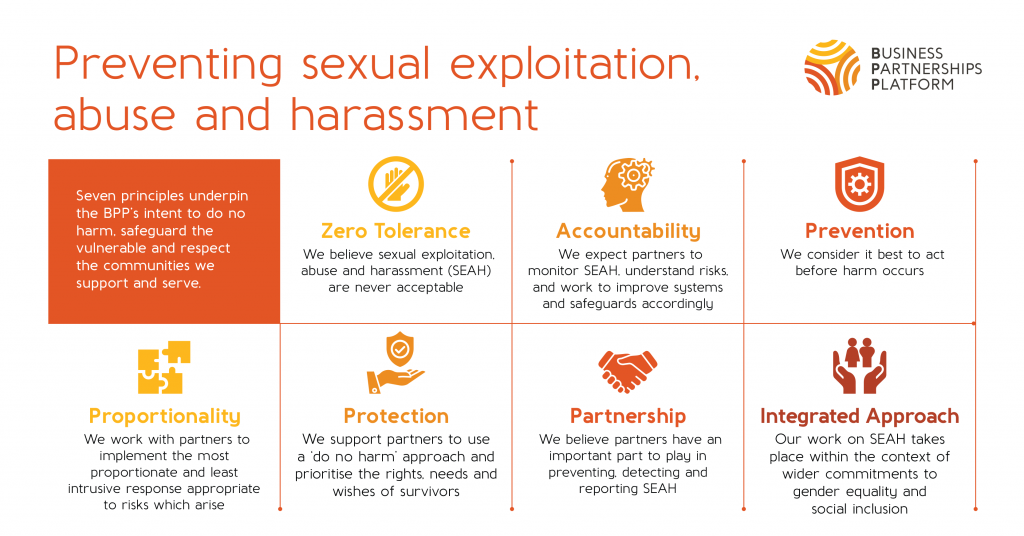Section seven: Safeguarding

Actions and minimum standards
The BPP is committed to preventing and responding to sexual exploitation, abuse and harassment in the delivery of its initiatives, in line with DFAT’s Preventing Sexual Exploitation, Abuse and Harassment Policy (PSEAH Policy).
We will work with you to identify the risk level of your business and partnership, to clarify required actions as a result of this rating and support you to strengthen your capacity to address sexual exploitation, abuse and harassment (SEAH) in your business and community.

At a minimum, you are expected to undertake the following actions, if not already in place in your business. We can support you as needed to meet the following actions:
| PSEAH Policy |
|
| Reporting and investigation procedures
|
|
| Initiatives which are classified as higher risk | If your BPP partnership is classified as higher risk, you may be requested to:
|
| DFAT’s Child Protection standards
|
Be aware of and abide by DFAT’s Child Protection standards, available on the DFAT website. Some additional guidance notes and support materials that may be of interest include:
|
Principles for prevention
The below principles underpin the BPP’s intent to do no harm, safeguard the vulnerable and respect the communities we support and serve.

Putting principles into practice: Example from our partners
In Vietnam, technology start-up JupViec, in partnership with LienVietPostBank, CARE and DFAT, trained its workforce to better understand, recognise and call-out child abuse.
JupViec’s training module on child protection was developed in the BPP partnership with the technical support from CARE. The training takes real life examples to explain what abuse is and provides practical tips to help prevent abuse specific to the context of JupViec’s services.
The BPP works with each of its partners to understand the role they can play in preventing, detecting and reporting abuse – recognising that protecting children is everyone’s business and that it also can contribute to creating a better business.
If you’d like to know more about JupViec’s work putting child protection principles into practice watch the video:
